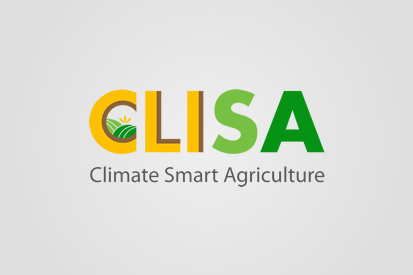
The following projects will be carried out under this research theme:
Sustainable Irrigation Management for Climate Change Mitigation: Irrigated agriculture uses more inorganic fertilizer and other agrochemicals than most rainfed systems and significantly contributes to GHG emissions. Consequently, efforts to reduce GHG emissions through improved crop management practices are likely to have more impact in irrigated lands than in rainfed areas. This is especially true for those areas with intensive irrigation in Canada. In this project, extensive field experiments will be considered through the collaboration with the state-of-the-art Irrigation Research and Demonstration Farm (IRDF) at Lethbridge College. The IRDF is being upgraded as a water smart farm, with 4 pivots and 2 lateral move irrigation systems equipped with variable rate irrigation technology, as well as 10 acres of subsurface drip irrigation and 18 experimental zones. Based on the field experiments, a number of agro-hydrological systems and crop production software packages (e.g., Hydrus and Aquacrop) will be used to assess the effects of sustainable irrigation management on crop production and GHG emission reduction. Through this project, the CLISA trainees will be able to assist in data collection at the IRDF to get acquainted with the latest irrigation equipment and technologies. They will be able to access recent IRDF data to evaluate water and nutrient use efficiencies of various types of equipment and management strategies.
Sustainable Soil Management to Improve Soil Carbon Stabilization and Productivity: Improving soil management practices can help farmers adapt to the likely adverse effects of increasing weather variability, reduce GHG emissions from agriculture, and build farming system resilience. This project will explore a suite of best management practices for soil management in the context of Canada by following the primary soil management principles (i.e., assessing the status of soil and its properties, improving soil water storage, controlling soil erosion, improving soil structure with organic matter, managing soil organic matter for soil carbon sequestration, and boosting nutrient management). This project highlights precision soil conservation and soil health using biosolids and organic amendments. Treatment plots will be developed at a small scale with multiple combinations and replications. A focus on understanding the use of biocarbon for soil application by developing an in-depth understanding of the linkage among the biomass type, process conditions, properties of biocarbon, soil conditions, and agriculture production will be carried out. This project will provide the CLISA trainees with a systematic understanding of sustainable soil management for climate change mitigation and adaptation.
Developing Energy-Smart Agrifood Systems: Agriculture and energy have always been closely interlinked. For example, agriculture can serve as a traditional source of energy through bioenergy, while fossil fuels have become a major input in modern agricultural production, leading to significant GHG emissions. Nowadays, the linkages between energy and agrifood systems have strengthened as agriculture has become increasingly reliant on chemical fertilizers, irrigation, and machinery. This project aims to explore the potential pathways towards energy-smart agrifood systems in the context of Canada, through (1) improving energy efficiency (i.e., food output per unit energy input) at all stages of the agrifood chain; (2) using diverse energy sources with an emphasis on the integration of renewable energy production (e.g., solar panels, geothermal systems, and electrification of farm vehicles); and (3) providing improved access to modern energy services. This project will enhance the CLISA trainees’ knowledge and experience in building energy-smart agrifood systems.
Sustainable Livestock Farming Under Climate Change: Livestock can generate significant amount of GHG emissions either directly (e.g., from enteric fermentation and manure management) or indirectly (e.g., from feed-production activities, conversion of forest into pasture). In the meantime, climate change poses serious threats to livestock production. For example, increased temperatures, shifts in rainfall distribution, and increased frequency of extreme weather events can adversely affect livestock production and productivity. This project will focus on the research advances towards sustainable livestock farming under climate change for the dominant livestock production systems in the context of Canada, through the exploration of potential pathways towards sustainable livestock farming, such as grazing management, pasture management and nutrition, animal breeding, disease control, water management, soil management, feed management, waste management, and energy use efficiency. This project will be conducted through the collaboration with the Atlantic Veterinary College at UPEI. The CLISA trainees will gain fundamental knowledge and hands-on trainings towards sustainable livestock management.

CLISA is the first multi-institutional training program in Canada towards climate smart agriculture to help address the need for HQPs who possess appropriate knowledge and expertise in climate change, precision agriculture, water and soil management, sustainable food production and food value chains, and climate-smart financing and policies to promote the development and application of innovative technologies and strategies in Canadian farming practices.